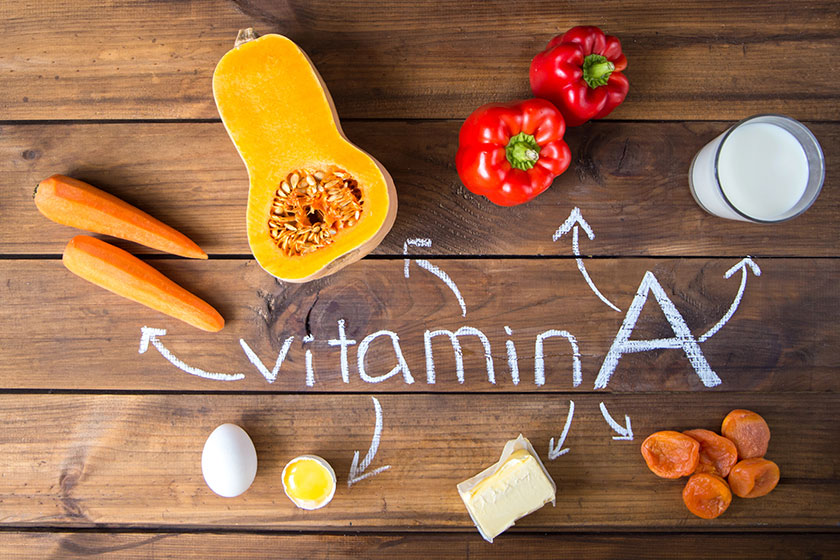As you age, maintaining your vision becomes a priority. Your diet plays a vital role in promoting eye health. Certain foods for seniors’ vision are packed with nutrients that support the eyes and help protect against age-related conditions such as macular degeneration, cataracts and dry eyes. Whether you are managing your own diet or seeking information for a loved one, incorporating these foods into daily meals can significantly impact eye health.
A balanced and nutrient-rich diet, combined with access to resources like health and wellness programs or retirement community amenities, offers a proactive way to support your eyesight while promoting overall well-being.
Here are some of the best foods that can help maintain and improve your vision as you age.
Leafy Green Vegetables
Spinach, kale and collard greens are powerhouses of lutein and zeaxanthin, two antioxidants that are highly concentrated in the retina. These nutrients help protect your eyes from harmful blue light and oxidative stress. By including leafy greens in your meals, you can promote long-term eye health and reduce the risk of developing macular degeneration or cataracts.
Incorporating leafy greens into your diet can be simple. Add spinach to a morning omelet or blend kale into a fruit smoothie for a nutritious start to your day. The versatility of these vegetables makes it easy to enjoy their benefits.
Fatty Fish
Fatty fish like salmon, mackerel and tuna are rich in omega-3 fatty acids, which play a significant role in maintaining the health of your retina. Omega-3s are particularly beneficial for preventing dry eye syndrome, a common issue as you age. These healthy fats also support overall eye function and help reduce inflammation, which can impact vision.
Try including grilled salmon for dinner or a tuna salad for lunch to boost your omega-3 intake. These meals not only support your eyes but also promote heart health. This makes them a valuable addition to your diet.
Citrus Fruits
Citrus fruits such as oranges, grapefruits and lemons are high in vitamin C, an antioxidant that helps protect your eyes from oxidative damage caused by free radicals. Vitamin C also plays a role in strengthening blood vessels in the eye, reducing the risk of cataracts.
Consider starting your day with a glass of fresh orange juice or adding grapefruit slices to a mixed green salad. These fruits bring a refreshing way to nourish your eyes and support your immune system.
Eggs
Eggs are an excellent source of lutein, zeaxanthin and zinc. They are a well-rounded food for supporting vision. These nutrients help protect the retina and promote night vision. The yolk contains high concentrations of these eye-friendly compounds, which are better absorbed when consumed with healthy fats.
A simple breakfast of scrambled eggs or a boiled egg as a snack can help you incorporate these nutrients into your daily routine. Eggs are also a versatile ingredient in many recipes. This will allow you to enjoy their benefits in various dishes.
Nuts and Seeds
Almonds, walnuts and sunflower seeds are rich in vitamin E, an antioxidant that helps slow age-related vision decline. Vitamin E works by protecting your eye cells from damage caused by oxidative stress. This helps reduce the risk of cataracts and macular degeneration.
A handful of nuts or seeds makes for a convenient snack or a delicious topping for salads or yogurt. With these in your meals, you can promote better eye health while enjoying a nutrient-dense food source.
Carrots
Carrots are well-known for their high beta-carotene content, a type of vitamin A that is necessary for maintaining good vision. Vitamin A supports the health of the cornea, the surface of the eye and plays a key role in preventing night blindness.
Snack on raw carrot sticks with hummus or add shredded carrots to soups and stir-fries to enhance the nutritional value of your meals. This vibrant vegetable is not only good for your eyes but also adds a splash of color to your plate.
Whole Grains
Whole grains such as quinoa, brown rice and whole wheat bread are excellent for maintaining eye health due to their low glycemic index. Foods with a low glycemic index can help reduce the risk of developing age-related macular degeneration by keeping blood sugar levels stable. Whole grains also contain zinc and vitamin E, which contribute to healthier eyes.
Switching from refined grains to whole grains in your diet is a simple step that can yield significant health benefits. Whether you are preparing a hearty bowl of oatmeal or a side of quinoa, these foods offer lasting nourishment.
Enhancing Eye Health Through Holistic Practices
While consuming these nutrient-dense foods can significantly benefit your vision, it is equally important to engage in practices that support overall well-being. Participation in activities and events such as cooking classes or gardening can help you incorporate fresh, healthy ingredients into your meals while staying socially engaged. Access to retirement community amenities can further simplify the process of maintaining a balanced diet.
Additionally, regular eye exams, wearing sunglasses to protect against UV rays and staying hydrated are all necessary practices for maintaining good eye health. Combining these habits with a diet rich in eye-friendly foods creates a comprehensive approach to preserving your vision and overall quality of life.
By prioritizing these foods for seniors’ vision, you are taking a proactive step toward safeguarding your eyesight and enjoying a fulfilling and active lifestyle. Whether through meal planning or participation in community wellness initiatives, there are numerous ways to support your eyes and overall health for years to come.







